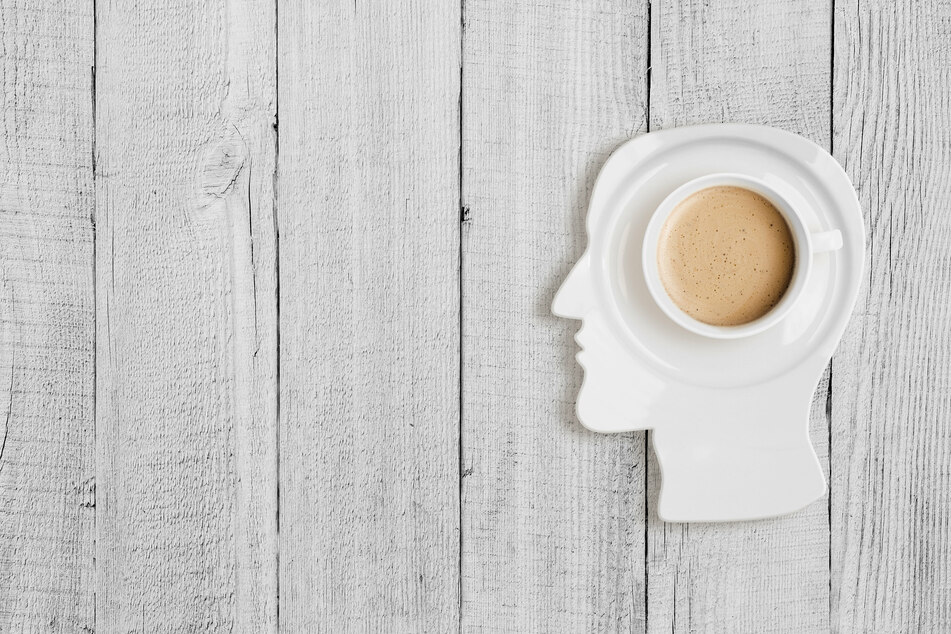Can coffee make you live longer? Busting the myths on the cup of joe
Coffee does lots of things to the body - much more than just perking you up and stimulating digestion. Studies show that regularly drinking coffee can even help prevent certain diseases. But does this mean being a coffee fiend is healthy? Get clued in about your morning brew!

For many people, coffee is the ultimate pick-me-up.
But it can do more than just make you feel less tired. Studies suggest that coffee can be very good for your health.
How come?
"Coffee is not unhealthy," says nutrition and health scientist Anna Floegel. Rather, recent studies suggest the opposite, albeit not necessarily for extreme use.
"Moderate consumption, at least, is more likely to be associated with a generally reduced risk of disease," Floegel said.
She evaluated long-term studies, for which tens of thousands of people were asked about their lifestyle over decades and new illnesses were recorded. Coffee enthusiasts can be pleased with one of the findings: "Those who drink coffee live longer - no matter where they are," she said.
For a long time, coffee has had a rather bad reputation when it came to health.
But why?
According to Floegel, it has to do with the design of the studies and, above all, with the fact that too little attention was paid to one very important factor: smoking.
The fact is that smokers drink coffee more often. Health risks, such as the increased risk of cardiovascular disease, were therefore sometimes wrongly attributed to coffee.
Coffee helps prevent some types of cancer

In fact, the scientific studies often indicate aspects that are beneficial to health.
For example, it is likely that coffee consumption has some preventive effect against uterine body cancer and liver cancer. The same applies to type 2 diabetes. And studies have also shows that coffee consumption can reduce risk of heart failure.
The risk of healthy people developing high blood pressure, on the other hand, is not related to coffee consumption, says Floegel.
Patients with high blood pressure don't have to give up coffee altogether, the German Heart Foundation has said. However, they should schedule their blood pressure measurements in such a way that they are not taken 20 to 30 minutes after drinking coffee because of the briefly elevated values.
People with heart arrhythmias should also be careful - if the problems become more pronounced after drinking coffee, they should drink less of it or avoid it altogether.
Coffee myths busted!

Coffee is thought to have wide-ranging health benefits when consumed in moderation. So let's dispel three common myths about the cups of Joe:
Theory 1: Coffee dehydrates
This is not true. "Coffee can be added to the amount of fluid you drink per day, like water," said Floegel. In general, it is recommended to drink about 64 ounces of fluid a day.
Theory 2: The more coffee you drink, the more awake you'll be
This is not true across the board. How quickly caffeine is metabolized varies greatly from person to person, explained Floegel: "For one person, half a cup is enough to turn night into day, while another can drink four cups and sleep like a baby."
There is also a habituation effect: if you drink a lot of coffee on a regular basis, a cup no longer gives you such a strong kick.
Theory 3: Coffee affects your digestion
For many people it is part of their morning routine: a cup of coffee to start the day and then a jaunt off to the toilet. This can can mainly be explained by the caffeine, said Floegel, because it tends to have a stimulating effect on the metabolism.
But this theory does not apply across the board: whether and to what extent coffee stimulates the digestive system varies from person to person.
And what if coffee really upsets your stomach?
Then it's worth switching to espresso, ecotrophologist Birgit Warnecke from the German Coffee Association has recommended. Espresso contains - due to the roasting and preparation - somewhat fewer substances that can irritate a sensitive stomach.
"The oft communicated advice to switch to long-roasted coffee for better 'agreeableness' is a myth," says Warnecke.
Adding milk also alleviates the problem
"If you're already suffering from an upset stomach, you should avoid drinking coffee - like many other foods - on an empty stomach," the expert advised. In this case, adding milk is a good idea, as it reduces direct contact between the coffee and the lining of the stomach.
Since caffeine stimulates digestion, decaffeinated coffee is sometimes better tolerated than caffeinated.
It has also been said that having a cup of coffee can heat things up in the bedroom, and give orgasms and extra jolt.
No matter the reason to grab your java jolt, know that in moderation, you can do so guilt-free!
Cover photo: 123RF/donot6